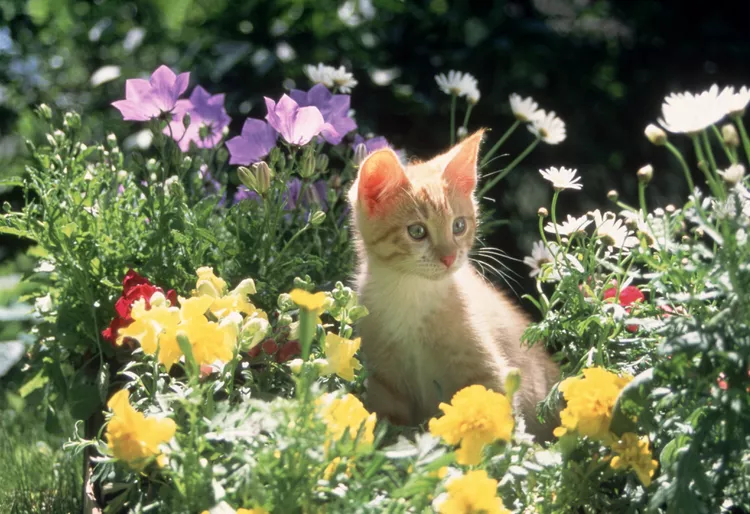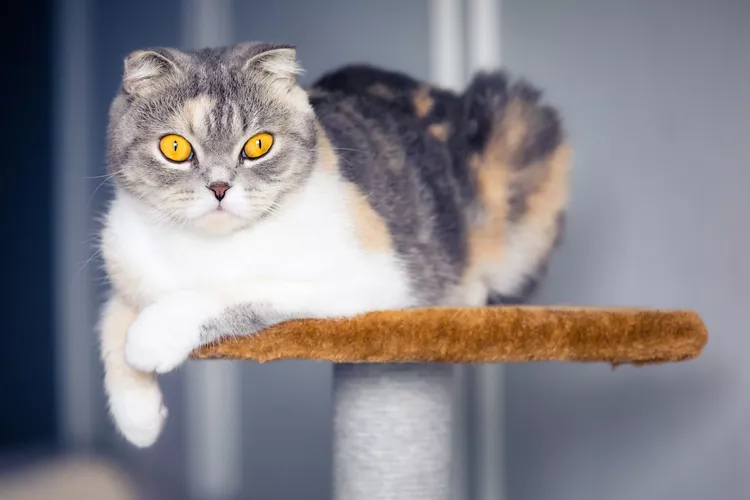Basil is one of the more commonly used and grown herbs in American homes. It’s used not just in a variety of dishes but also has a history of use in traditional Eastern medicinal practices. It also is relatively easy to grow, either in an outdoor garden or inside a home in a pot or container. If you do choose to grow basil indoors, or even outside, you may wonder if your cat can eat basil. Is it healthy for them? Is it even safe?
Is Basil Safe For Cats?
Basil has a sweet and pungent aroma and flavor. The smell alone can intrigue your cat enough to try a piece or two. According to the ASPCA, basil is not toxic to cats.
Basil is actually the common name for Ocimum Basilium and is an herb belonging to the Lamiaceae family. Commonly known as the mint family, this family of plants also includes catnip, lavender, sage, rosemary, oregano, lemon balm, and, obviously, mint. It should be noted that in most Western dishes, the term "basil" is commonly used to refer to sweet basil, also called Genovese basil.
While there are a large number of varieties of basil species (upwards of 60), they all belong to the Lamiaceae family. You may also see basil listed as Tulsi (in Ayurvedic medicine) or St. Joseph’s Wort. There is also an herb commonly called St. John’s Wort, but it should be noted that this is a different plant entirely, Hypericum perforatum, and belongs to a completely different family of plants (the family Hypericaceae).
Are There Health Benefits to Basil in Cats?
Basil contains vitamin A, vitamin K, iron, manganese, and calcium and is low in calories. It has been studied in humans for use in maintaining stable blood glucose levels, boosting the immune system, reducing stress and anxiety, and aiding in memory, but evidence for any of these claims is poor.
Could basil have similar effects in cats, though? It should be noted that cats are obligate carnivores, requiring animal protein in their daily diet. People, even self-proclaimed "carnivores," are actually omnivorous. So our digestion works differently than a cat’s digestion. Cats may not digest basil the same way you or I would. This means that your cat may not be able to absorb the vitamins and minerals present in basil the same way humans can.
Potential Health Concerns With Feeding Basil to Your Cat
Although basil isn’t outright toxic to cats, there are things you should be aware of before feeding it to your kitty. Again, cats are obligate carnivores, requiring the taurine from animal protein in their diet because they can’t synthesize it on their own. This means that cats don’t necessarily require as many plants or vegetables in their diet.
A little nibble on a basil leaf here or there probably won’t skew your cat’s daily nutrition that much, but too much basil can lead to an imbalance in their nutrition. If your cat eats too much basil, that can also lead to gastrointestinal upset, including vomiting and diarrhea. In rare cases, a cat may actually be allergic to basil and this can manifest as vomiting but it can also lead to hives, swelling, or even difficulty breathing. Basil essential oil is high in synthetic phenols, which can lead to liver damage, so its use should be avoided in cats.
What Kind of Basil Can Cats Eat?
Since basil is non-toxic to cats, there’s really no one variety a cat can and cannot eat. Fresh basil will have a less potent and pungent flavor and aroma than dried basil. The vitamins and minerals will also be present in smaller concentrations in fresh basil than in dried basil. So while it hasn’t been researched, it’s possible that a cat’s daily nutrient balance may skew more quickly with large amounts of dried basil versus fresh basil.
So, while it is safe for your cat to take an investigatory nibble on a basil leaf, it’s probably best to avoid sharing this plant with your cat on a regular basis.




















